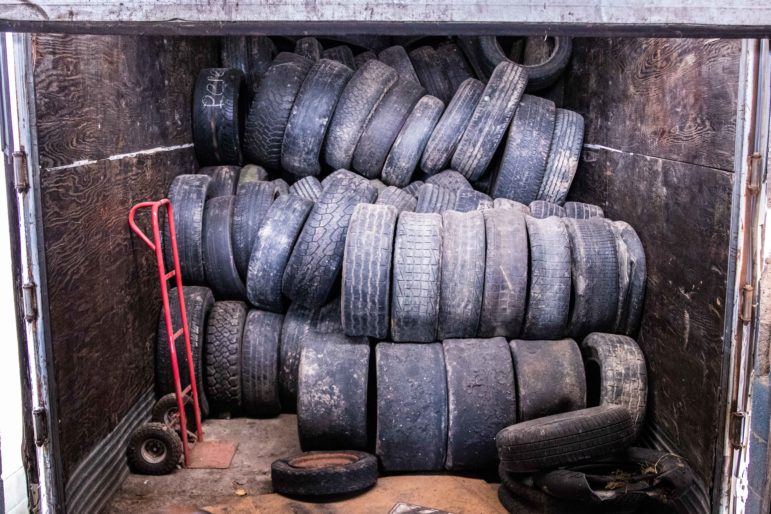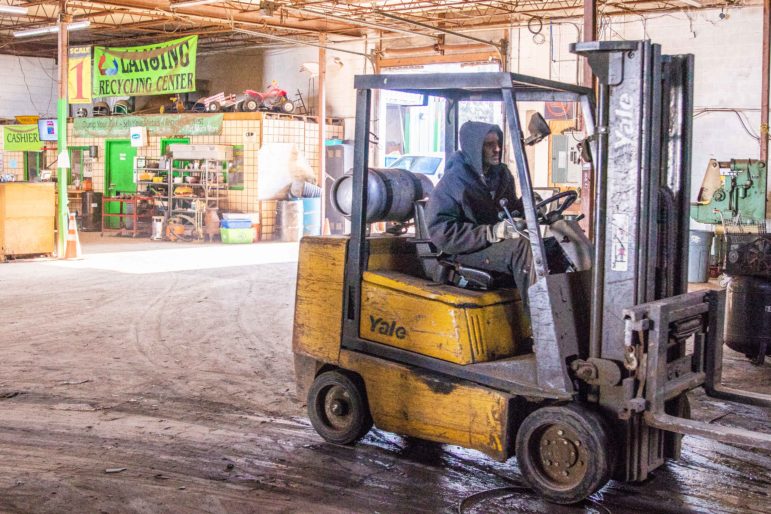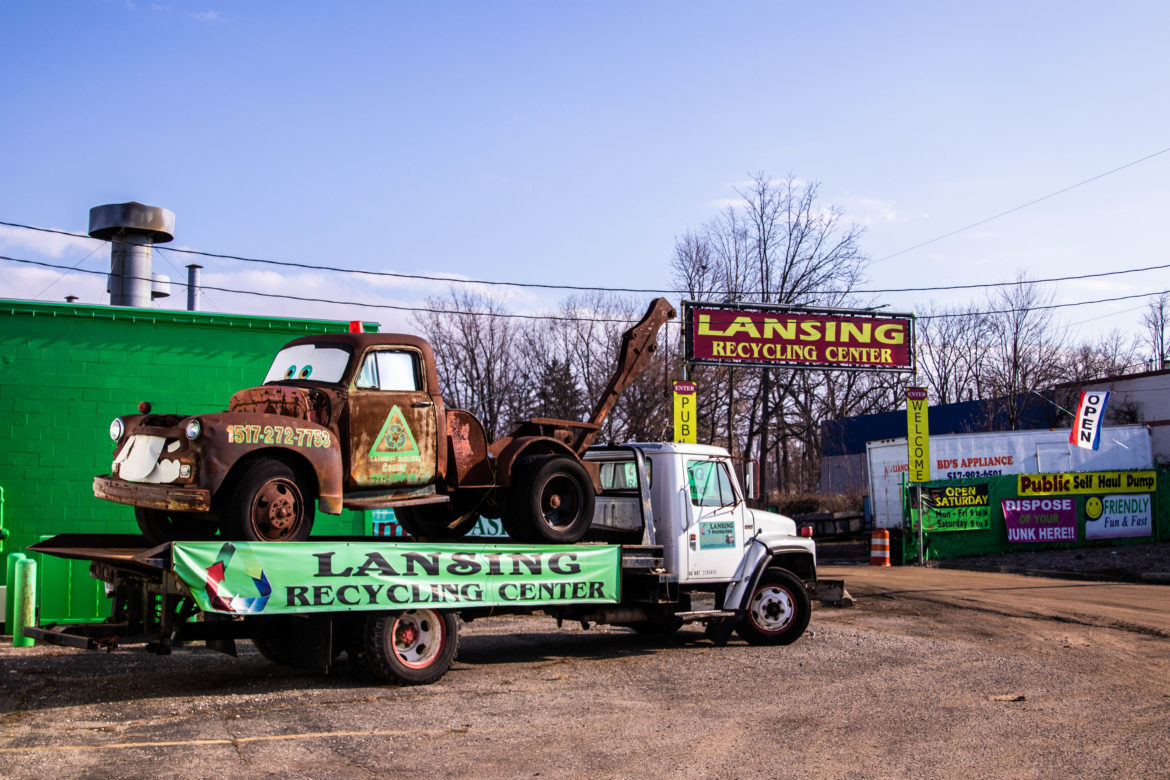Every four years, it’s mandated by law that the U.S. Global Change Research Program provide a report to Congress on the state of global climate change.
In November, the Fourth National Climate Assessment was published by the research program. The report interprets the findings of the research program, analyzes the effects of global change on the environment and analyzes current trends in global change, both human-induced and natural.
Sections in the global portion of the report include portions about communities, actions to reduce risks, ecosystems and water. The report also further analyzes specific regions, with a chapter devoted to the Midwest.
“Future risks from climate change depend primarily on decisions made today,” the report says.
Local governments and businesses already are dealing with the issues the report addresses.

Matt Schmucker
Tires to be recycled sit in a trailer outside the Lansing Recycling Center facility on Cedar Street on Dec. 12, 2018.
Local business action
One business in the Lansing area making a positive environmental impact is the Lansing Recycling Center. The center is a self-haul public dump that processes everything from yard waste to tires to paint and chemicals.
The company processes 10-13 tons of material daily, and that material would otherwise likely end up in landfills.
“Anything going into recycling is going to help,” Lansing Recycling Center manager Matthew Nally said. “It’s going to be used for new products. There are jobs that are people working at the recycling facilities that are processing that even further.”
The center pays for drop-offs from the public based on the type of material. It’s then processed at the facility, with as much of the material being kept out of the landfill as possible, Nally said.

Matt Schmucker
Rashad Bond, the self-described “computer guy”, works at the Lansing Recycling Center facility on Cedar Street on Dec. 12, 2018.
“Some of the material that comes here does go to the landfill,” Nally said. “But we try to pull out what we can so it can be recycled.”
This type of recycling has an impact on the global climate, according to the report, though more action is required. The report talks about the need for regional adaptation, but still stresses the importance of local action.
‘Mitigation and adaptation actions also present opportunities for additional benefits that are often more immediate and localized, such as improving local air quality and economies through investments in infrastructure,” the NCA4 says.
East Lansing
The city of East Lansing has several efforts to reduce its environmental impact. ity councilmember Aaron Stephens said he is excited about some of these efforts, despite some of their more boring appearances.
“We just greenlighted a plan that might not seem as cool to the normal people’s eyes but is pretty exciting; it’s an anaerobic digester,” Stephens said. “What this digester actually does is converts waste back into methane which can then be used to power things.”
Producing power from sources other than coal and natural gas is a priority,Stephens said.
“The city of East Lansing is committed to moving towards 100 percent renewable energy and so far we’re making good strides,” Stephens said. “Looking forward it’s going to be about working with BWL (Lansing Board of Water and Light) to make sure that they have a priority on more renewable energy.”
The city’s plan for the anaerobic digester contributes to this goal.
“It’s an investment upfront,” Stephens said. “But in the long erm it not only saves the city money, but it’s better for the environment long term. I’m really excited about that.”
The federal climate report stresses the importance of these kind of local efforts on reducing global climate change.
“The impacts of climate change are already being felt in communities across the country,” it says.
These impacts can be seen in more frequent and intense weather events, not unlike what East Lansing saw last year during the spring.

Matt Schmucker
An employee of Lansing Recycling Center drives a forklift through their facility on Cedar Street on Dec. 12, 2018.
MSU and flooding
A community directly impacted by the flooding Red Cedar River was Michigan State University. During February, large portions of campus flooded completely including the baseball and softball field.
“That was sort of a prevention measure because if the flooding got too high, that would’ve prevented it from getting into the buildings,” said Tracy Anderson, visual communications manager for MSU Infrastructure Planning and Facilities. “Fortunately, the water didn’t rise to that level, but we did everything we could to avoid that if it was potentially going to happen.”
More preventative measures were also put in place after the flood
“One of the big worries for IPF is log jams on the bridges, which then back up more water and cause more flooding,” said Matt Bailey, landscape services manager for IPF. “We got together all of our groups at IPF and talked about what we could do better. We’ve got a plan for every interval of flood stage.”
These plans were prepared to prevent damages in the event of another large-scale flood — which becomes more likely with increased climate change.
The climate report talks about increased flooding, specifically in the Midwest, as an issue to be prepared for.
“Average annual damages from heightened flooding risk in the Midwest are projected to be in excess of $500 million (in 2015 dollars) by 2050,” the report says.
The report also talks about the mental effect of large-scale flooding as a risk to prepare for.
“Mental stress following flooding events can cause substantial health impacts, including sleeplessness, anxiety, depression, and post-traumatic stress disorder,” the report says.
